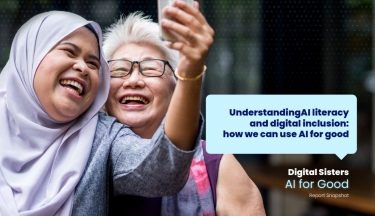The Digital Sisters AI for Good project will launch inclusive learning materials through 20 national partners and train 40 Digital Mentors to reach 600 women.
Additionally, 3,500 community organisations will gain access to program resources via Good Things networked model.
"We’re thrilled to be launching this work that will support women in building the skills and confidence to engage with AI and other emerging technologies so they don’t get left behind,” states Good Things CEO Jess Wilson.
|
|
"We are grateful for our partnership with Telstra and Microsoft on this groundbreaking initiative,” she adds.
As part of Digital Sisters AI for Good, Good Things Australia conducted research into the intersection between AI literacy and digital inclusion, through surveys with community organisations and consultations with individuals from various sectors.
They also engaged directly with refugee and migrant women. Insights were refined during a cross-sector roundtable in early May.
In a statement, Good Things presented the following key findings from its Digital Sisters AI for Good report:
- Barriers to AI engagement mirror those faced by the digitally excluded, including low digital ability, affordability, access to technology, and regional disparities.
- AI Literacy was widely understood as having the skills and knowledge to effectively, responsibly, and safely use AI tools and is made up of intersecting literacies including digital, data, information, and language literacy.
- Ethical concerns around AI development, included online harm, data privacy, and bias in existing tools.
- A general lack of awareness about AI among migrant and refugee women, despite its daily use.
- A person needs to have basic digital and literacy skills to use AI powered tools and devices, although AI tools can help to overcome some barriers to technology use.
"It’s not just about how to use AI, supporting people to build their AI literacy means being able to critically analyse information that is created by AI," explains Wilson.
"But this is not just an individual responsibility, we need to engage in a public conversation about AI's benefits and risks, ensuring that the continued digitisation that is occurring as a result of AI does not leave people further behind.”
“By focusing on AI literacy, we’re helping support a future where more women can take control of their digital lives and fully participate in the opportunities of a tech-driven society,” claims Telstra group executive sustainability external affairs and legal Lyndall Stoyles.
"At Microsoft, we believe that economic growth and opportunity should be accessible to everyone, and this begins with equipping all individuals with the skills needed to thrive in a digital, AI-driven economy, while also addressing the unique challenges women face in our digital world,” notes Microsoft general manager enterprise commercial Jo Dooley.













































